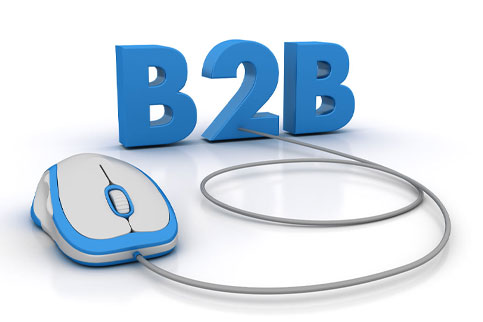Lost a deal? It may not be the usual suspect
What would you give to learn the one thing that swings sales deals? If you are willing to wager your year’s bonus on it, hang on. Because it is not one thing really, but six things according to research findings shared in an article published in Harvard Business Review (June 23, 2017). The findings were the result of a Survey done by Steve W. Martin Professor of Sales Strategy at the University of Southern California Marshall School of Business.
The 76-part survey covering more than 230 buyers was based on the premise that it is facile to blame loss of a sale on the usual suspect: Product quality. This is because majority buyers are seen to rank most competing products as roughly equal when it comes to product features.
Clearly, there must be other decision-making factors at play. It is these differentiators that Prof Martin’s Survey set out to find. The Survey uncovered six interesting findings
1. One selling style doesn’t fit all
If you are like the rest of us and have been conditioned to believe that all Customers prefer the warm, caring and fuzzy selling style that involves listening, understanding and then proposing a solution most appropriate to Customer’s unique needs, the Survey threw up some surprising insights. A summary:
| Customer Population Size |
Prefer salesperson who … |
| 40% |
Listens, understands and then matches solution to solve a specific problem |
| 30% |
Earns their trust by making them feel comfortable |
| 30% |
Challenges their thoughts and pre-held ideas and suggests a solution not known to them |
The different functions within organisations had their own preferences too. In Accounting and IT, under 20% wanted to be challenged, whereas 43% of engineering did not mind being challenged. More than 50% of Marketing and IT showed a preference for salesperson who had a listen-understand-match style. Sales preferred listening and challenging styles equally while HR was equally split across all three selling styles. In general, buyers who preferred to avoid conflicts weren’t comfortable being challenged
Action Cue: Consciously vary your selling style to suit your Customer, to improve sales outcomes
2. Committees don’t really count, individuals do
Purchase decisions in companies are usually influenced by an interplay of factors including self-interest, corporate politics and group dynamics. And these decisions are rarely unanimous. Interestingly, the Survey found 90% participants confirming that 89% of the time, one individual in the evaluation committee is able to influence the decision.
Action Cue: Identify the individual dominating the evaluation committee and invest time in engaging with him all through the purchase journey instead of making efforts to win over the entire committee
3. Advantage market leader but not all the way
Most industries are controlled by a single company that enjoys sizeable market share, high visibility products, generous marketing budgets and substantial reach. If you are salesperson up against such industry giants, securing orders could be a daunting challenge. You can take heart, as the Survey offers some cheering insights
- Not all buyers are fixated on the market leader and are quite willing to try out second tier players
- Only a third of the participants were particular about going with the best-known brand offering the highest functionality
- 63% were open to picking a fairly visible brand with 85% functionality at 80% of the cost
- Participants willing to select a somewhat unknown brand that promised 75% of the functionality at 60% of the cost of the market leader
Industry specific findings were wholly predictable. Fashion and Finance had the highest predisposition in favour of the best-known brands and top-of-line products whereas Manufacturing and Health care had the least
Action Cue: Use functionality and cost comparisons to demonstrate your product’s value and hold your own against market leaders
4. Often price is more in the seller’s mind
Price is certainly an important point in a purchase decision. And price is most often such a recurrent variable in buyer conversations that salespeople can come to regard price as the single biggest block in selling. The Survey findings bust this myth. The significance of price would vary with buying propensities. This put buyers into three decision-factor buckets:
| Buyer behaviour |
Significance of price |
| Price conscious |
Price is the top decision influencing factor |
| Price sensitive |
Price secondary to other deciding factors like functionality and vendor capability |
| Price immune |
Price becomes issue only when desired solution is priced far more than comparable alternatives |
Analysis of responses to different pricing scenarios across functions and industries produced interesting findings
| Buyer behaviour |
Price conscious |
Price sensitive |
Price immune |
| Function wise |
Manufacturing, IT, HR and Accounting |
Marketing and Sales |
Engineering |
| Industry wise |
Manufacturing sector, Health care, Real estate and Fashion |
Banking, Technology and Consulting |
Government |
Action cue – To beat price selling blues, analyse and understand buying propensity of the Customer and the significance of price in the buyer’s scheme of things
5. Ability to force buying decisions is not uniform across buyer groups
What is even more dreadful than competition to a salesperson? It’s a stalled buying decision. Imagine all the sales effort that goes waste, when that happens. Given that in any company there are always competing demands for purchase resources in any buying entity, the ability of the buyer group to push through internal resistance is critical for the sales effort to succeed. And this ability, the Survey found, is not uniform across groups. The research discovered that Sales, IT and Engineering packed more internal clout in push through their projects as compared to Accounting, HR and Marketing
Action cue – Get the measure of your buyer group’s internal clout to calibrate your sales efforts
6. Charisma alone doesn’t open all doors
Another widely believed sales school lesson is that the salesperson’s personal charisma can charm the worst sales resistance into submission. Not always, the Survey found. While a friendly, likeable and product proficient salesperson was a top draw in all industries, the selling style preferences were differentiated across industry types
- Media and fashion industries, predictably loved the charismatic stereotype, oozing charm even if not the strongest in product knowledge
- Manufacturing and health care sectors, on the other hand, preferred the ‘professional type’ who knows the product inside out but not one you want make friends with at your first meeting
Mercuri Insights
Sales Execution is ‘the reason of existence’ for a Sales Person. As buying behavior changes with advances in technology and challenges in the economic priorities of the buyer, the Sales Community needs to continuously sharpen its execution capabilities. This puts premium on discovering the ‘How to Sell?’.
That ongoing discovery is the role of Sales Leadership, in as much as it is the generals role to discover ‘how’ his troops should fight. No amount of fire power and man power can win a war if the ‘how to fight’ is not articulated well enough, in ways that inspire the troops to go for the kill, in every given moment at the battlefield.
So, what is the takeaway from it all? Buying decisions are not always rational as human motivations are complex. What separates a win from loss is the ability to assess the intangible, intuitive human element in purchase decisions and develop a contextual understanding of how such decisions are made
You can read Steve W Martin’s article 6 Reasons Salespeople Win or Lose a Sale published in Harvard Business Review on June 23, 2017, here















